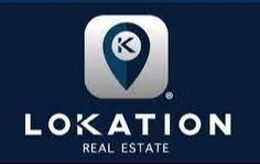|
When you’re shopping for a home, it can feel like you’re hemorrhaging money. You’ve got all sorts of things to pay for, from loan application fees to home inspections, so when the issue of earnest money comes up unexpectedly, it can be a “slam on the brakes” moment. Now that the days of low to no down payments are largely past and markets everywhere seem to be running thin on inventory, earnest money may well be the most important negotiating tool you’ve never heard of. What Is Earnest Money? When you make an offer on a home, part of that offer can include a little show of good faith on your part, in the form of cold, hard cash. Generally, one to three percent of the offer price is pretty normal for an earnest money deposit, but this can vary pretty widely based on market conditions. And the more you put up, the better. But what happens to that money? Earnest money is literally just a show of faith. When you go to the closing table, it becomes part of your cash to close equation, which includes other line items like your down payment, your closing costs, and your prepaid items. It’s not a bribe or an extra fee to convince a seller to sell to you. It will simply be applied in full as a credit in your closing documents, reducing the amount of money you need to bring with you on the big day. Here’s the one kicker. If you were to decide to back out of the contract with no real cause, the seller may be entitled to some or all of that earnest money. However, plenty of situations exist where you may not be able to close, but your earnest money will be refunded, such as:
What Is an Earnest Money Note?In some markets, you may have an additional option for earnest money, known as an earnest money promissory note. This is essentially an IOU that accompanies the offer. On the note, you’ll specify exactly when you’ll either turn the paper into actual cash or forfeit the offer entirely. Though these were once very common, they’re far less so today. If you choose to use an earnest money promissory note, be sure to describe in great detail why you’re not able to provide earnest money on the spot and how you will remedy this.
For example, if you have some stocks you were going to cash out for your down payment, but didn’t want to touch until you were really ready, you may need time to sell enough to cover the earnest money. In that case, specify this as the reason and say that you’ll initiate a sale on a certain day, then convert the note on that day. Make sure to leave yourself a little leeway, because if you fail to perform, you can suffer serious consequences. Generally speaking, earnest money promissory notes can be considered a sign of a weak offer, but this varies from offer to offer and market to market and you should inquire before taking that leap. Whether you want to buy or sell a home locally or globally, I can help you finding or selling your home so you can create the life you love! ☎️ 706.530.1114 or email us. Have a great day! Iveth Caruso Comments are closed.
|
Categories
All
The information on this site is intended to be a free resource to provide general information to the public. The information is intended to supplement instruction from your legal, financial or real estate adviser. The information contained on this site should never be taken as a substitute for legal or financial advice from a licensed professional.
Archives
October 2021
|
Cell: 706.530.1114
Iveth Caruso Real Estate™ ©2017 All rights reserved. LoKation Real Estate is licensed in Georgia
Your Home, Your Dream, My Mission!
God, Family, then Business.




